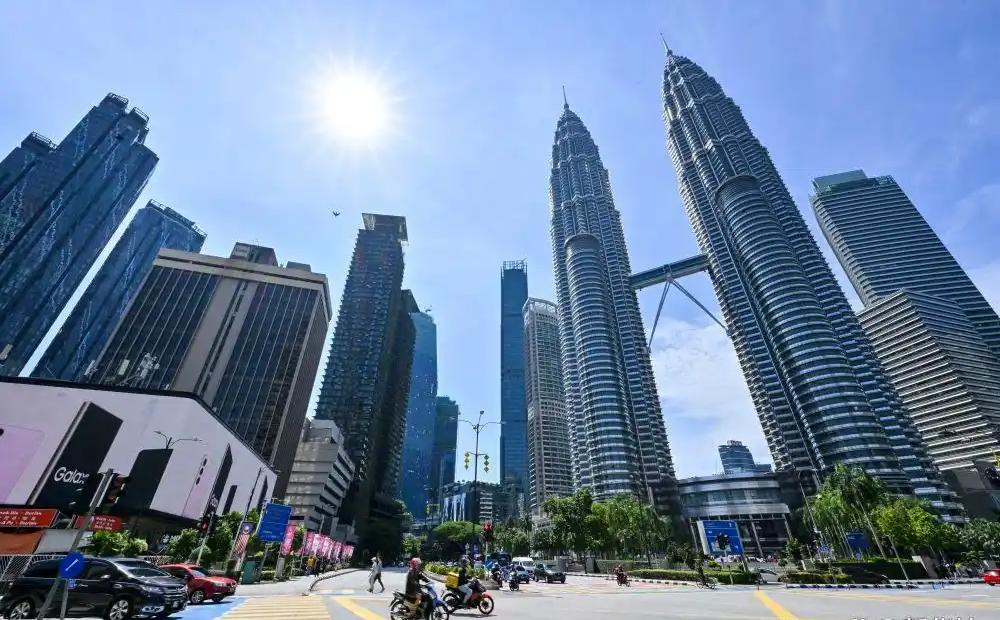
In the future, any growth statistics in Malaysia may show an upward trend. In the next thirty years, the country's economic scale is expected to double. The World Bank predicts that Malaysia will transform into a high-income economy by 2028. It is expected that by 2050, the population of Malaysia will increase by about 25%, reaching over 44 million people. Driving this growth requires a significant amount of resources, and it is expected that Malaysia's electricity demand will at least double by 2050 compared to now. Nowadays, Malaysia heavily relies on limited fossil fuel reserves, and the government is striving to balance the growing demand for electricity with sustainable development goals. The key to addressing this challenge is to incorporate more renewable energy into the energy structure while maintaining a reliable base load power supply.
Firstly, Malaysia aims to achieve net zero emissions by 2050 and plans to increase the proportion of renewable energy in its final energy structure from the current 5% to over half. Malaysia's Minister of Natural Resources, Environment and Climate Change, Neyazmi Nyahmed, wrote in the "2023 Malaysia Energy Transition Outlook" released by the International Renewable Energy Agency: "Malaysia recognizes the importance of building a modern, reliable and affordable future oriented energy system. The key issue to consider in energy transition is cost. Everyone hopes to use clean energy, and considering production costs such as power grids and batteries, countries including Malaysia must make significant investments. The main challenge is not whether there is a willingness to promote energy transformation, but how countries like Malaysia balance the development stage of their economy with the investment required for green energy infrastructure construction
Secondly, in terms of energy, achieving these climate goals will definitely require Malaysia's efforts. The waters near the Malay Peninsula and the states of Sabah and Sarawak on the island of Borneo have long provided the country with abundant oil and natural gas reserves. The country is one of the largest hydrocarbon producers in Southeast Asia and a major exporter of liquefied natural gas.
Therefore, it is not surprising that natural gas occupies an important position in its primary energy structure. China also imports a large amount of coal to provide fuel for its power plants. In recent years, its dependence on coal has surpassed that of natural gas, especially in the context of data center growth driving electricity demand growth. Hydropower, biomass energy, and solar photovoltaics account for 5% of the total renewable energy. However, the International Renewable Energy Agency stated that Malaysia has "enormous untapped potential" to expand the share of renewable energy in this energy structure and provide local and affordable alternatives to fossil fuels. The government strongly supports taking this path. In addition to diversifying energy supply and significantly reducing emissions, it is estimated that the country can save up to $13 billion annually through this transformation.
Moreover, Akihiro Ondo, Managing Director and CEO of Mitsubishi Electric Asia Pacific, a subsidiary of Mitsubishi Heavy Industries, stated that in order to balance the integration of new renewable energy with sustainable and secure energy supply needs, Malaysia is considering using natural gas as a reliable carrier, which is a true transitional solution for the region. The company recently secured a contract to provide advanced gas and steam turbines for a new combined cycle gas turbine power plant in Sarawak state. By replacing old power plants with more efficient CCGT systems, power plants will be able to co combust with hydrogen up to 30%, and this proportion will continue to rise as the hydrogen supply chain matures. Mitsubishi Heavy Industries has also partnered with TNB Power Generation, Malaysia's largest electricity producer, to explore clean technologies, including how to develop hydrogen and ammonia value chains.
Overall, although the transformation faces challenges such as power grid upgrading and policy coordination, Malaysia can accelerate the process through public-private partnerships and technological innovation. Energy transition is not only an environmental issue, but also a key opportunity for reshaping national competitiveness.

报告显示,中国电力投资加速增长,预计2024年电网基建投资将超过5300亿元。
近日,市场迎来了一则引人注目的消息:工业巨头3M公司(MMM.N)在本周五公布了其季度业绩报告,随后股价飙升至近两年来的
最近,外媒给OpenAI算了笔账,今年可能要血亏50亿美元。
近日,巴黎奥运会和世界铁人三项协会联合发布了一项重大决定,宣布因塞纳河水质污染问题,原定于近期进行的奥运会铁人三项首次下
当地时间7月18日,法国巴黎发生了一起令人震惊的持刀袭警事件。
近期,一则重大消息在国际舞台上引起轩然大波,马来西亚宣布加入金砖国家。
调查发现,互联网和智能手机的使用干扰了韩国近五分之一学生的生活。